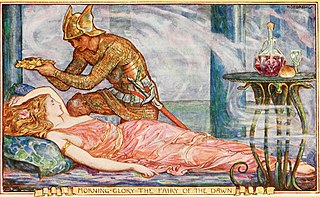
Clive Barker is an English novelist, playwright, author, film director, and visual artist who came to prominence in the mid-1980s with a series of short stories, the Books of Blood, which established him as a leading horror writer. He has since written many novels and other works. His fiction has been adapted into films, notably the Hellraiser series, the first installment of which he also wrote and directed, and the Candyman series. He was also an executive producer of the film Gods and Monsters, which won an Academy Award for Best Adapted Screenplay.
Titan most often refers to:

Roger Joseph Zelazny was an American poet and writer of fantasy and science fiction short stories and novels, best known for The Chronicles of Amber. He won the Nebula Award three times and the Hugo Award six times, including two Hugos for novels: the serialized novel ...And Call Me Conrad (1965), subsequently published under the title This Immortal (1966) and then the novel Lord of Light (1967).

Joe William Haldeman is an American science fiction author. He is best known for his novel The Forever War (1974). That novel and other works, including The Hemingway Hoax (1991) and Forever Peace (1997), have won science fiction awards, including the Hugo Award and Nebula Award. He was awarded the SFWA Grand Master for career achievements. In 2012 he was inducted as a member of the Science Fiction Hall of Fame. Many of Haldeman's works, including his debut novel War Year and his second novel The Forever War, were inspired by his experiences in the Vietnam War. Wounded in combat, he struggled to adjust to civilian life after returning home. From 1983 to 2014, he was a professor teaching writing at the Massachusetts Institute of Technology (MIT).
Deep or The Deep may refer to:
Mythopoeia, or mythopoesis, is a narrative genre in modern literature and film where an artificial or fictionalized mythology is created by the writer of prose, poetry, or other literary forms. This meaning of the word follows its use by J. R. R. Tolkien in the 1930s. The authors in this genre integrate traditional mythological themes and archetypes into fiction. Mythopoeia is also the act of creating a mythology.

Alan Edward Nourse was an American science fiction writer and physician. He wrote both juvenile and adult science fiction, as well as nonfiction works about medicine and science. His SF works sometimes focused on medicine and/or psionics.

The Food of the Gods and How It Came to Earth is a science fiction novel by H. G. Wells, first published in 1904. Wells called it "a fantasia on the change of scale in human affairs. . . . I had hit upon [the idea] while working out the possibilities of the near future in a book of speculations called Anticipations (1901)." There have been various B-movie adaptations. The novel is about a group of scientists who invent a food that accelerates the growth of children and turns them into giants when they become adults.
Thomas Burnett Swann was an American poet, critic and fantasy author.
Twilight of the Gods may refer to:

Richard Allen Lupoff was an American science-fiction and mystery author, who also wrote humor, satire, nonfiction and reviews. In addition to his two dozen novels and more than 40 short stories, he also edited science-fantasy anthologies. He was an expert on the writing of Edgar Rice Burroughs, and had an equally strong interest in H. P. Lovecraft. He also co-edited the non-fiction anthology All in Color For a Dime, which has been described as "the very first published volume dedicated to comic book criticism"; as well as its sequel, The Comic-Book Book.
The Norse mythology, preserved in such ancient Icelandic texts as the Poetic Edda, the Prose Edda, and other lays and sagas, was little known outside Scandinavia until the 19th century. With the widespread publication of Norse myths and legends at this time, references to the Norse gods and heroes spread into European literary culture, especially in Scandinavia, Germany, and Britain. In the later 20th century, references to Norse mythology became common in science fiction and fantasy literature, role-playing games, and eventually other cultural products such as Japanese animation. Storytelling was an important aspect of Norse mythology and centuries later, with the rediscovery of the myth, Norse mythology once again relies on the impacts of storytelling to spread its agenda.

H.G. Wells' The Food of the Gods, also billed as just The Food of the Gods, is a 1976 science fiction thriller film released by American International Pictures and was written, produced and directed by Bert I. Gordon.
The Furies (Erinyes) are the deities of vengeance in Greek mythology.
Marie Phillips is a British writer. She is best known for her debut novel, Gods Behaving Badly, a comic fantasy concerning ancient Greek gods living in modern-day Hampstead. It was first published in the United Kingdom in 2007, later becoming a bestseller in Canada. Her second novel, The Table of Less Valued Knights is a comic take on the world of King Arthur. It was published in the UK in 2014 and nominated for the 2015 Baileys Women's Prize for Fiction. Her third novel, a Shakespearean comedy entitled Oh, I Do Like To Be... was released in 2018.

Fantasy is a genre of speculative fiction involving magical elements, typically set in a fictional universe and sometimes inspired by mythology and folklore. Its roots are in oral traditions, which then became fantasy literature and drama. From the twentieth century, it has expanded further into various media, including film, television, graphic novels, manga, animations and video games.

Ken Liu is an American author of science fiction and fantasy. His epic fantasy series The Dandelion Dynasty, which he describes as silkpunk, is published by Simon & Schuster. Liu has won Hugo and Nebula Awards for his short fiction, which has appeared in F&SF, Asimov's, Analog, Lightspeed, Clarkesworld, and multiple "Year's Best" anthologies.

Gods and demons fiction is a subgenre of fantasy fiction that revolves around the deities, immortals, and monsters of Chinese mythology. The term shenmo xiaoshuo, coined in the early 20th century by the writer and literary historian Lu Xun, literally means "fiction of gods and demons". Works of shenmo fiction include the novels Journey to the West and Investiture of the Gods.
This is complete list of works by American science fiction and fantasy author Fred Saberhagen.








